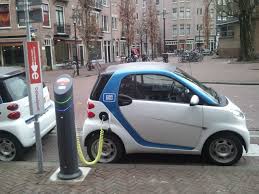
Electric cars are nowhere ready to take over the market in the U.S. according to a report by Houston-based IHS Markit. The firm issued a report this week indicating short-term oil demand is growing strong and will continue to do so through the end of 2020.
Electric cars are seeing an increase focus but IHS Markit indicated refined product demand growth has averaged 1.2 million barrels per day over the last five years. And it believes current global total liquids oil demand growth is at similar levels to those recorded from 2003 to 2007. Current global total liquids oil demand is nearly 100 million barrels a day.

“Although electric vehicles (EVs) are making headlines, they are not yet a market force to replace the internal combustion engines that power today’s automotive fleets, so oil demand is currently growing strong,” said Spencer Welch, director, head of global short-term refining research at IHS Markit, and the report’s co-author. “Although EVs undoubtedly have the potential to disrupt the energy and automotive sectors in the longer term, they currently make up around 1.5 percent to 2 percent of total global vehicle sales, and account for less than 0.5 percent of the global vehicle fleet; so their influence on the oil market, in the short term, is limited.”
The IHS Markit report compared the current oil demand growth surge to demand levels during 2003 to 2007, and identified underlying significant differences between the two cycles.
“There are key differences between the oil market today and the oil market in 2003 to 2007, which is important when we seek to assess how sustainable this demand growth cycle is as compared to the past,” Welch said. “Demand growth now is currently more widely distributed, with the OECD (Organization for Economic Cooperation and Development, which includes 35 countries) region and NGLs (natural gas liquids) contributing much more to global oil demand than during 2003 to 2007. In addition, the global oil demand growth is supported by most refined products rather than being concentrated on diesel as it was in the previous period, which is putting less strain on refiners.”






